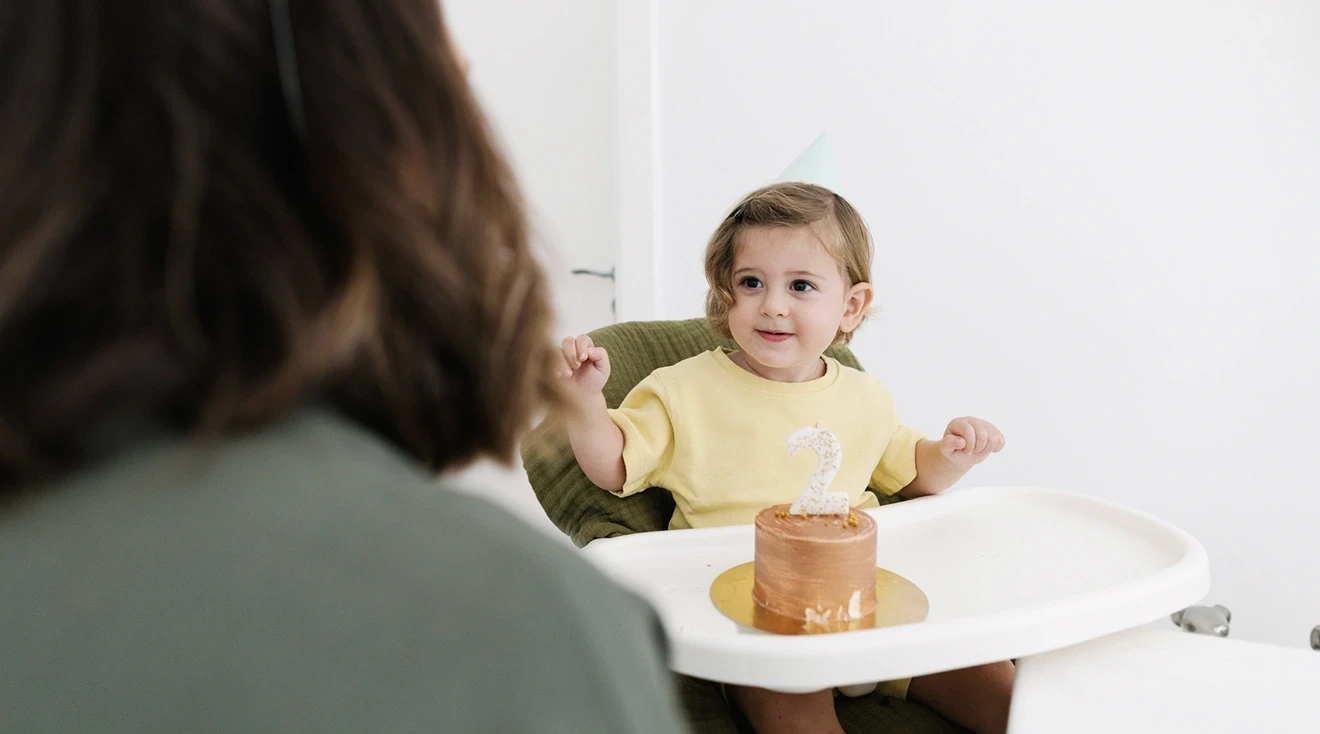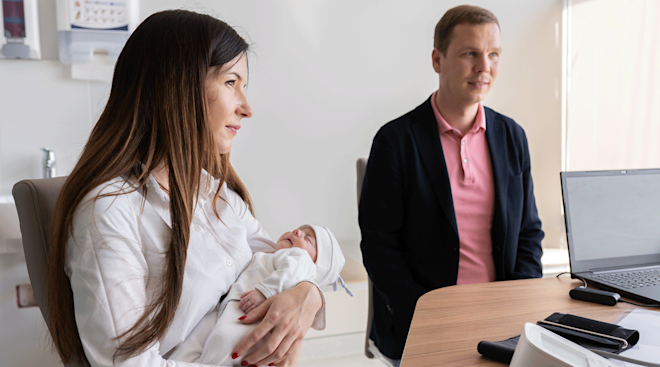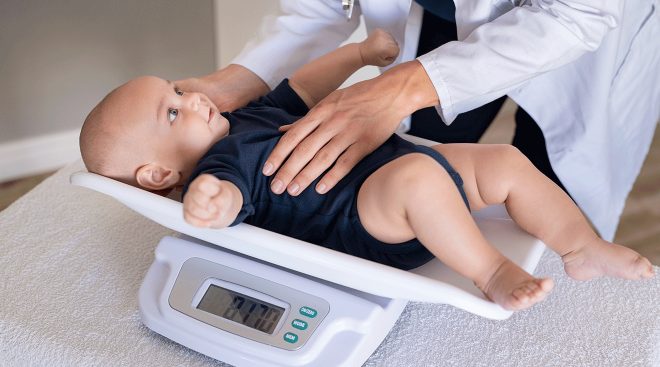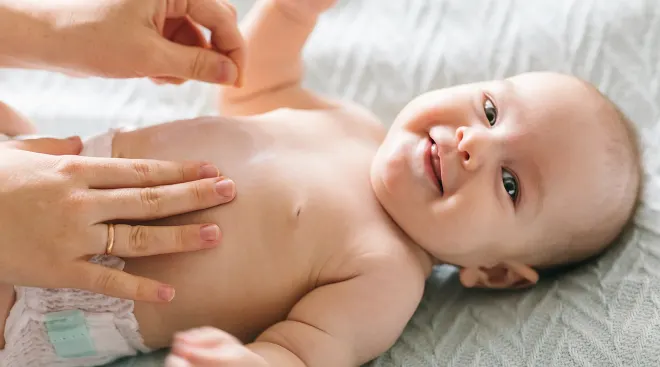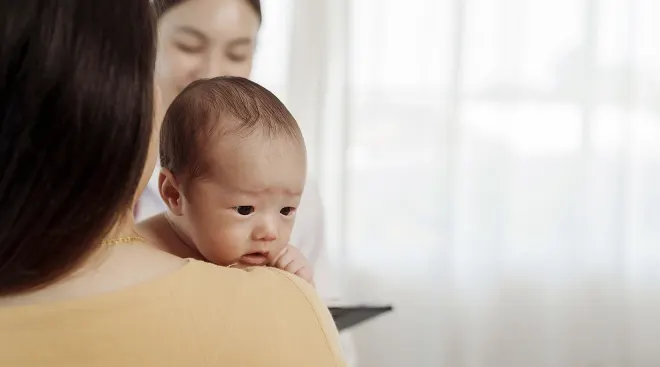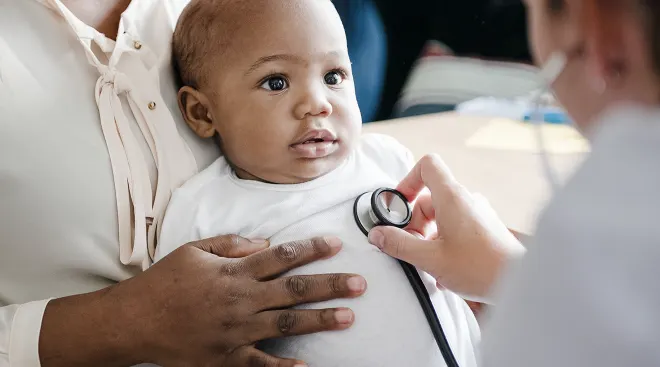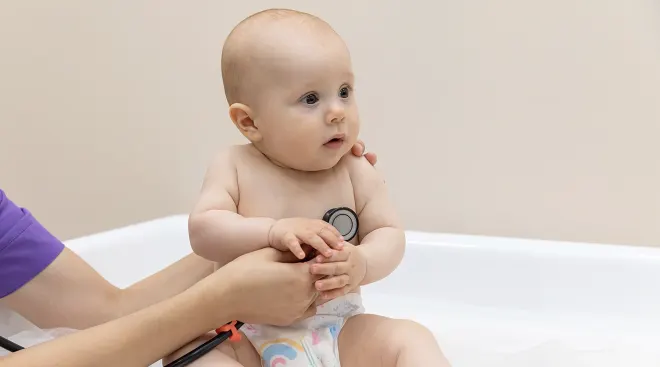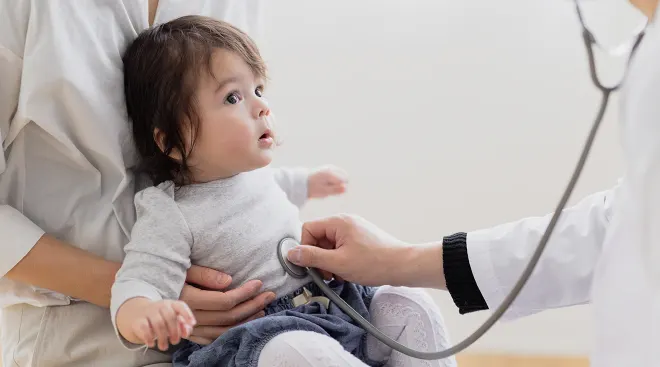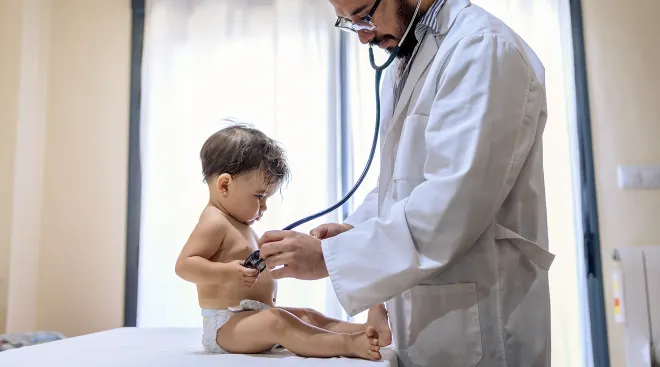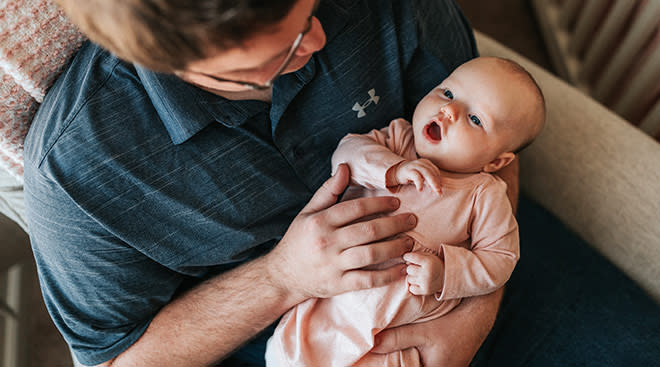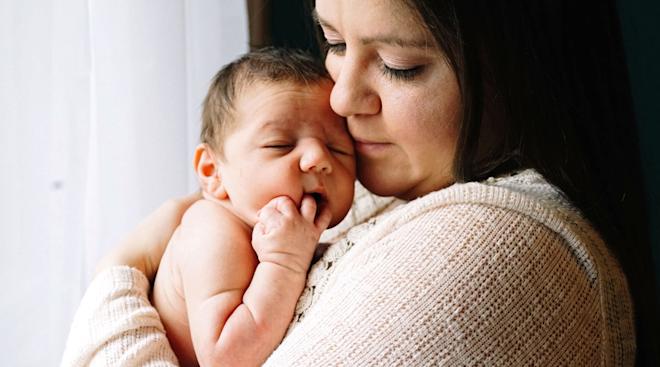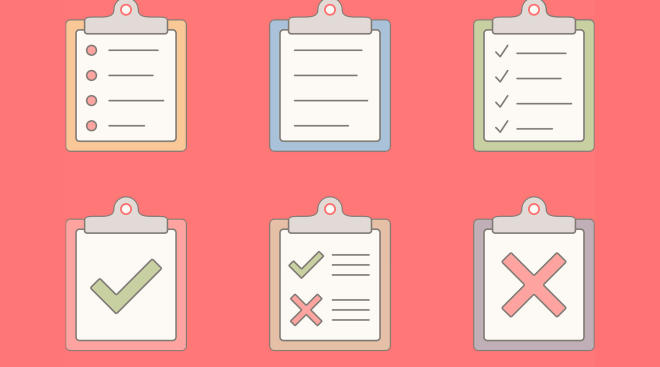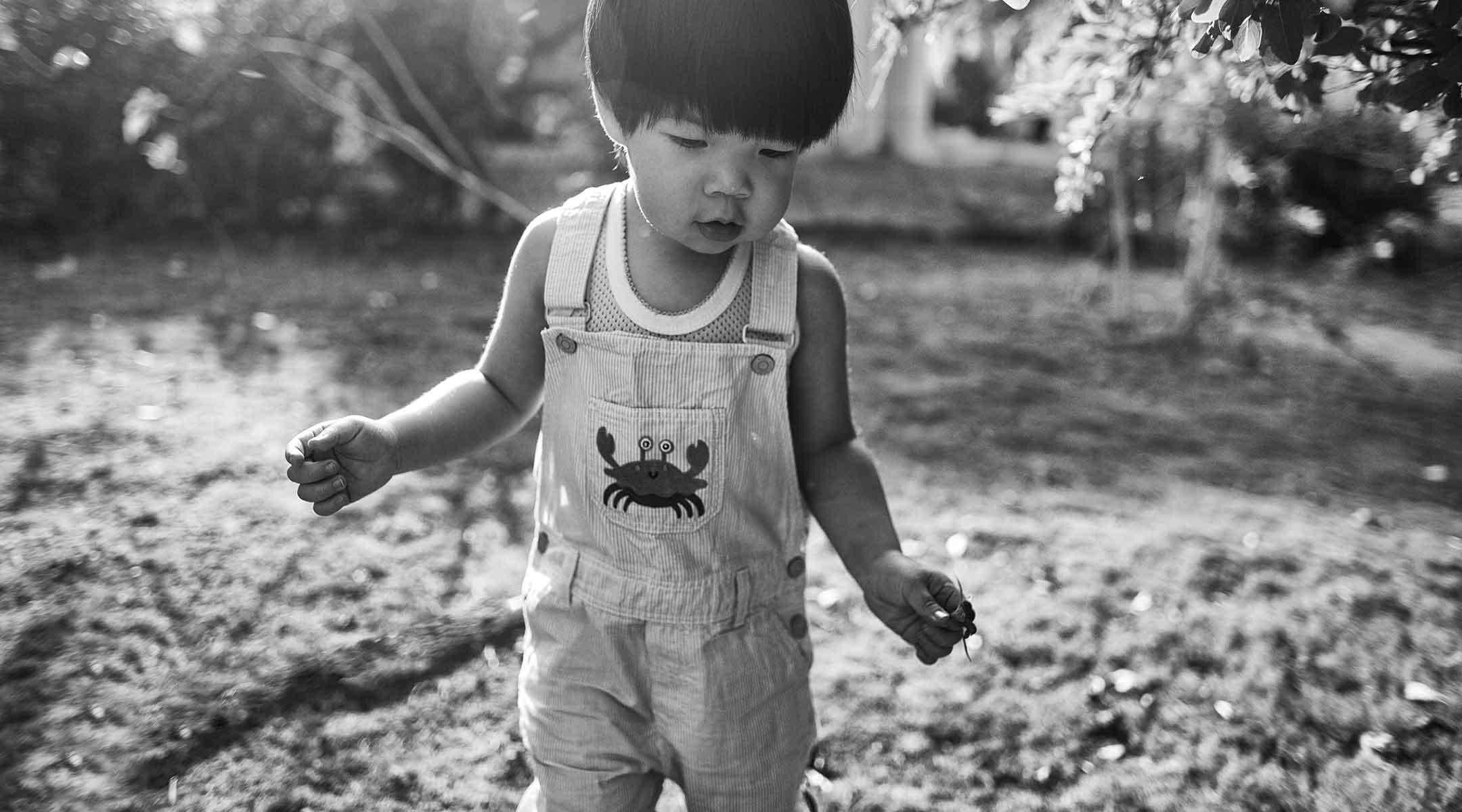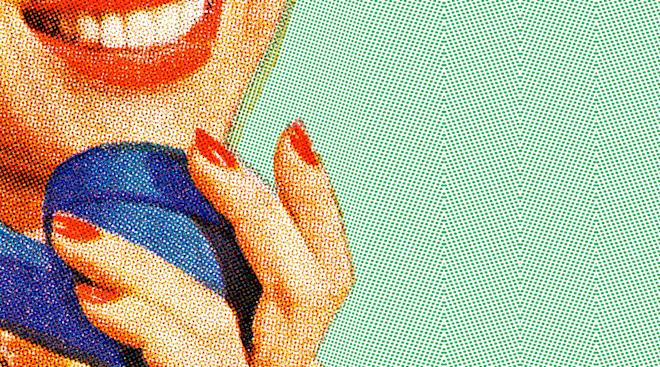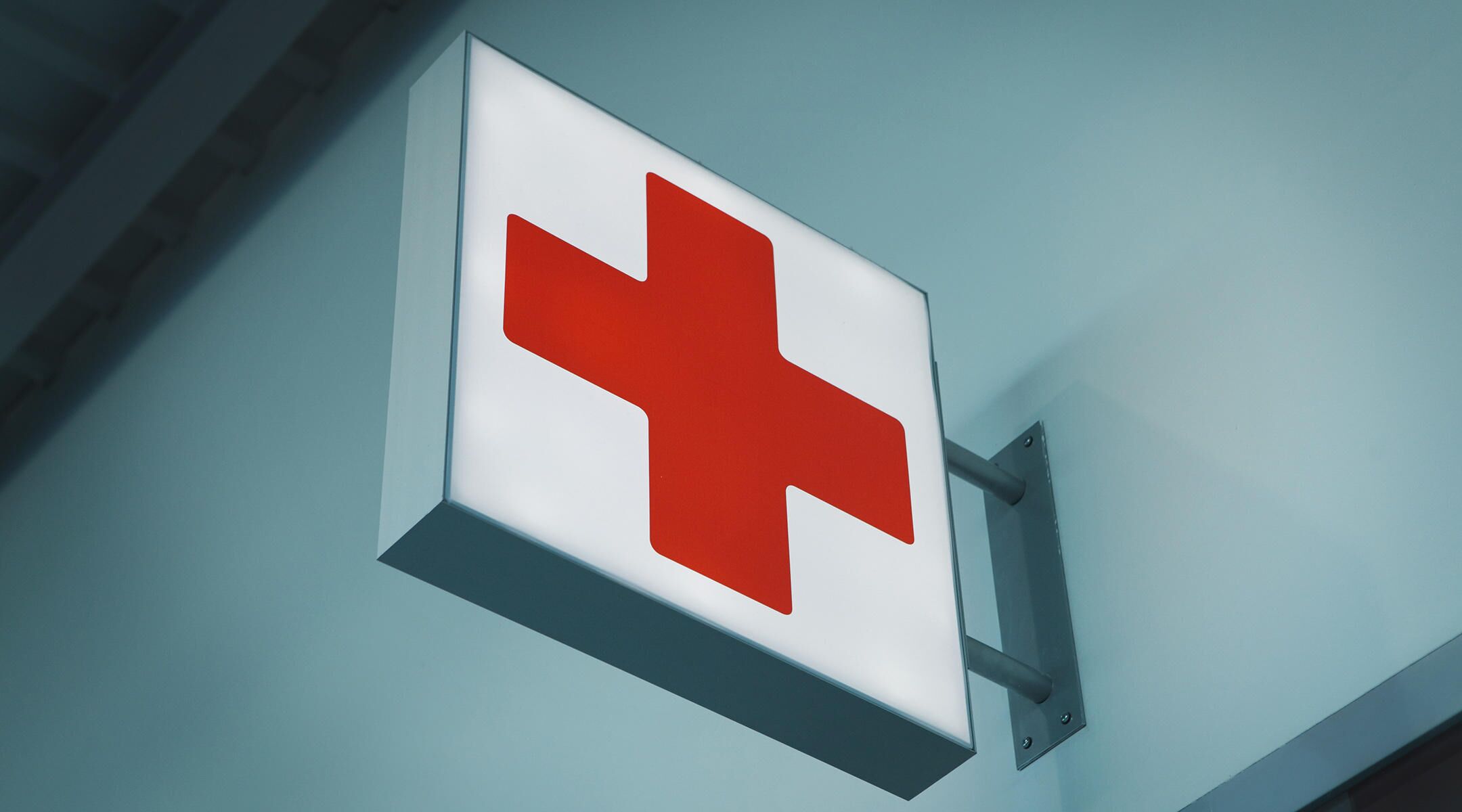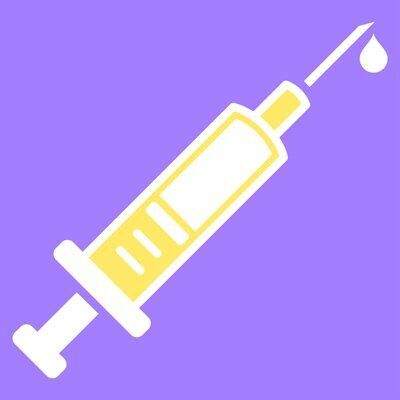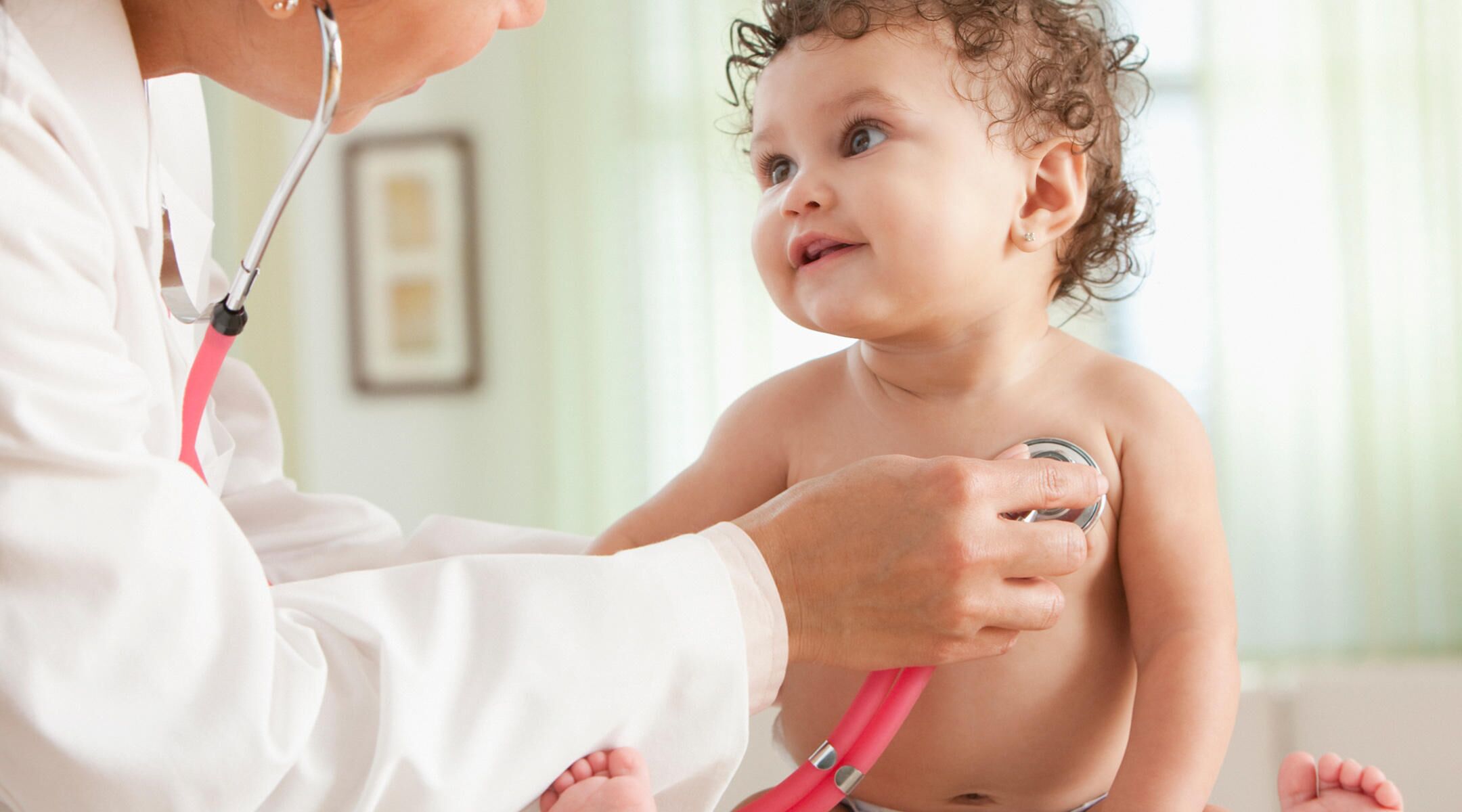What to Know About Your Child's 2 Year Checkup
Can you believe your little one is already 2 years old? At this age your 24 month old is probably regularly exercising their independence (and throwing the occasional tantrum), kicking balls, running around and saying more words than ever (many of which you may now clearly understand!). They may even be ready to potty train (a major milestone for both of you!). To ensure your kiddo’s development is on track, your pediatrician will want to bring them in for their 2-year-old checkup. Below, learn more about everything that happens at this appointment and how to best prepare.
You may notice your kiddo becomes fussy or nervous at the pediatrician’s office. “Some 2-year-olds are still very scared at this visit when they’re weighed and measured, and some are not,” says Lauren Crosby, MD, FAAP, a California-based pediatrician. To help prepare your tot for the appointment, she suggests reading books and using a toy doctor kit at home to role-play activities like checking the eyes, nose and mouth and listening to the lungs with a stethoscope. It may also be helpful to have an older sibling present, if possible. Your pediatrician can demonstrate on them first since they’re more likely to be cooperative, Crosby says. Comfort items such as snacks, milk, water, a pacifier, books and toys can also go a long way. “I have no problem if the child watches an educational video that they like to keep them relaxed while the parents and I speak,” Crosby adds. Rest assured, your child’s feelings and frustrations are developmentally normal and will fade with time.
Finally, don’t forget to bring any records of screenings, tests and immunizations from previous visits, as well as a list of questions to ask (more on this below).
Just like at your toddler’s past well visits, your pediatrician will measure their height, weight and head circumference and add these numbers to their growth chart, says Loretta Cody, MD, a Connecticut-based pediatrician. They’ll also calculate your child’s body mass index (BMI). According to the American Academy of Pediatrics, at the two-year checkup your provider will also check and screen for:
- Lead exposure
- Anemia (This is usually tested with a finger prick anytime there are concerns about diet and iron-rich food intake, Crosby says)
- Tuberculosis
- Blood pressure
- Hearing
- Vision (Crosby notes her office, and some others, use a handheld machine for the vision test)
- New and existing teeth that need another round of fluoride varnish (this helps strengthen tooth enamel)
Along with the physical workup, your pediatrician will observe your child during the appointment and make a verbal assessment of their overall development by asking about their milestones, nutrition, sleep and stool patterns, Crosby says.
Milestone assessment at 2 years old
According to the AAP, your pediatrician will want to hear all about your child’s behavior, cognitive and emotional development, language milestones and more. They may ask questions, such as :
- How does your child play and engage with others?
- Does your child play with multiple toys at a time?
- Dothey use toys with buttons, knobs and switches?
- Can they can kick a ball and/or jump?
- How well do they walk up and down stairs?
- How many blocks they can stack?
- Can they point to and identify two or more body parts or other familiar objects?
- How many words they can say?
- Can they form two-word phrases and or sentences?
- Do they help to dress and undress themselves?
Autism screening at 2 years old
As you did at the 18 month checkup, you’ll once again complete an autism spectrum disorder screening questionnaire—likely the Modified Checklist for Autism in Toddlers—Revised with Follow-Up (MCHAT-R/F). It’ll ask about baby’s speech development, behavioral habits and milestone progress, notes the AAP. It’s important to remember that these screenings are not diagnostic, as family history and other health factors also play roles in the development of autism spectrum disorders. Rather, this screening is meant to identify any early risk factors and possible next steps.
Dietary habits and nutrition check in at 2 years old
It’s important to make sure your toddler is eating enough and consuming nutrient-rich foods. While you’ll want to offer a variety of healthy foods, the AAP advises letting your child decide how much they want to eat—a task that can become challenging when you’re in the throes of their picky eating stage. With that in mind, Crosby says that your pediatrician will likely ask some questions, including:
- Does your child eat with a spoon or other utensils?
- Do they can drink from a cup?
- What kind of fluids do they drink daily?
- How much milk do they consume—and what type do they drink the most?
- What kinds of foods do you offer during meals and snacks?
- Does your child eat a variety of foods?
- How do you handle any picky habits?
- How often does your family eat together during mealtimes?
Your pediatrician may also ask whether your child has had their first dental visit, Cody says. They’ll inquire about potty training too, and walk you through some potential signs of readiness.
Sleeping habits check in at 2 years old
Your pediatrician will want to get a read on your child’s sleeping patterns and habits at 2 years old. Cody says they’ll inquire about:
- How well your child sleeps at night
- How many hours your child sleeps at night
- Whether they still take daytime naps
- How long any naps are
Child safety check in at 2 years old
As your tot becomes more active, there’s a ton of safety considerations to keep top of mind, notes the AAP, including:
- How often your child is around water or at the pool, and what precautions you take (like fencing, gates, pool alarms, etc.)
- Where cleaning products and medications are stored, and whether they’re accessible to your child
- How any home gym equipment is stored and secured
- Whether anyone in the home smokes
- Whether you feel safe in your home
- Other aspects of home, food and car seat safety
The AAP notes that most toddlers will likely have received all of their early recommended vaccinations by the time they’re 2 years old. However, if there were any immunizations that were missed or delayed, your doctor will catch up on them at the two-year checkup. “During this visit, they [may] receive a second hepatitis B vaccine (if it hasn’t yet been given) and a flu shot, if it’s flu shot season,” Crosby says. Plus, your pediatrician may also go over any updated guidelines for the COVID-19 vaccine.
This age of toddlerhood involves lots of key social and emotional development. Your little one is probably very curious, loves to explore and has a tough time with changes. Though this phase can be difficult at times, it’s important to know your kiddo is looking to you to learn how to positively deal with all their big feelings. “[They]want to be independent, but they also still must rely on adults,” says Crosby. “They may be frustrated because they’re unable to verbalize what they mean or what they want—or because they want to do more than they’re capable of. This can be hard for them and their parents, but it’s a normal developmental milestone.”
Below, some possible things to ask about at the two-year appointment:
- What type of milk is best for your child to drink
- How often they should brush their teeth and visit the dentist
- Screen time recommendations
- How to best handle tantrums and the “terrible twos”
- Positive approaches to toddler discipline (i.e. time-ins vs. time-outs)
- How to handle separation anxiety and clinginess
- Any questions or concerns around milestones
- When to transition to a toddler bed
- Potty training readiness signs and suggestions
- How to handle picky eating habits and sleep issues
- Switching from a rear-facing to a front-facing car seat
- Safety considerations on the playground
Moreover, if you see any potential red flags in your child’s development, bring them up to your pediatrician. Here are some behaviors to bring up, according to Cody and Crosby:
- A child who’s not mimicking actions
- If they’re not using two-word sentences
- They’re not saying at least 15 words
- They’re unable to follow simple commands
- Your toddler isn’t showing any displays of affection
- They don’t engage in pretend play
- They’re not using toys in a typical manner
- They don’t notice others around them
- They’re not running and climbing
- They don’t point to things and people
- They don’t feed themselves
- They’re not yet scribbling or stacking objects
Additionally, if there’s any regression in your child’s development, your pediatrician will want to know about it, Cody says. They’ll help figure out what the cause may be, and work with you to take steps for any necessary early interventions.
At 2 years old, your little one is becoming their own little person. They’re becoming increasingly independent, but will likely still want to keep you close for cuddles. The truth is, they’re grappling with lots of big feelings that they may not yet understand. As you help them through this transitional phase, it’s important to show them compassion, empathy and kindness (even when you’re at your wits end because they want Goldfish for dinner again). Before you know it, you’ll be taking them to their next doctor’s appointment, which may occur at 30 months or 3 years, depending on your pediatrician’s practice.
Please note: The Bump and the materials and information it contains are not intended to, and do not constitute, medical or other health advice or diagnosis and should not be used as such. You should always consult with a qualified physician or health professional about your specific circumstances.
Plus, more from The Bump:
Loretta Cody, MD, is a board-certified pediatrician based out of Connecticut. She received her medical degree from New York Medical College and completed her residency at Yale New Haven Children’s Hospital.
Lauren Crosby, MD, FAAP, is a pediatrician with La Peer Pediatrics in Beverly Hills, California, as well as a mom of two. She earned her medical degree from UCLA School of Medicine and completed her residency at Cedars-Sinai Medical Center. She currently serves as an official spokesperson for the American Academy of Pediatrics.
Healthy Children (American Academy of Pediatrics), Your Checkup Checklist: 24 Months (2 Years) Old, August 2022
Healthy Children (American Academy of Pediatrics), How Pediatricians Screen for Autism, December 2019
Learn how we ensure the accuracy of our content through our editorial and medical review process.
Navigate forward to interact with the calendar and select a date. Press the question mark key to get the keyboard shortcuts for changing dates.

































